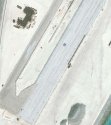Jeff, Taiwan in the 90's is day and night compared with today's Taiwan.Okay, that's enough of this kind of talk.
This is a GROSS generalization.
I spent a LOT of time in Taiwan in the 1990s. While there, I did not get the impression or idea that they had any kind of self-hatred for their Chinese heritage, background ,or culture.
To the contrary, they were always talking to me about the National Museum where so many artifacts and historical documents that had been brought over to the Island as they escaped the mainland to preserve them from the cultural purge that took place under Mao.
They were very proud of it and took me to that museum to show me numerous historical, cultural, and heritage items on several occasions.
I spent less time in Hong Kong so cannot speak as strongly there...though when going there (it was still under British control then) I also did not notice anything like this...though my involvement was not as seep or prolonged as it was in Taiwan.
Let's be very careful about generalizing people like this...that sort of thing is specifically against SD rules in any case.
Basically, for anyone who does not speak Chinese and hasn't followed closely local news there in the last 15 years, it would be difficult to unterstand Taiwan as it is today.
If people try to learn about Taiwan reading English news, then forget it; you would have no idea what information Taiwanese are being fed with on a daily basis.
Don't want to turn this thread into a political one, I'll just stop there.




